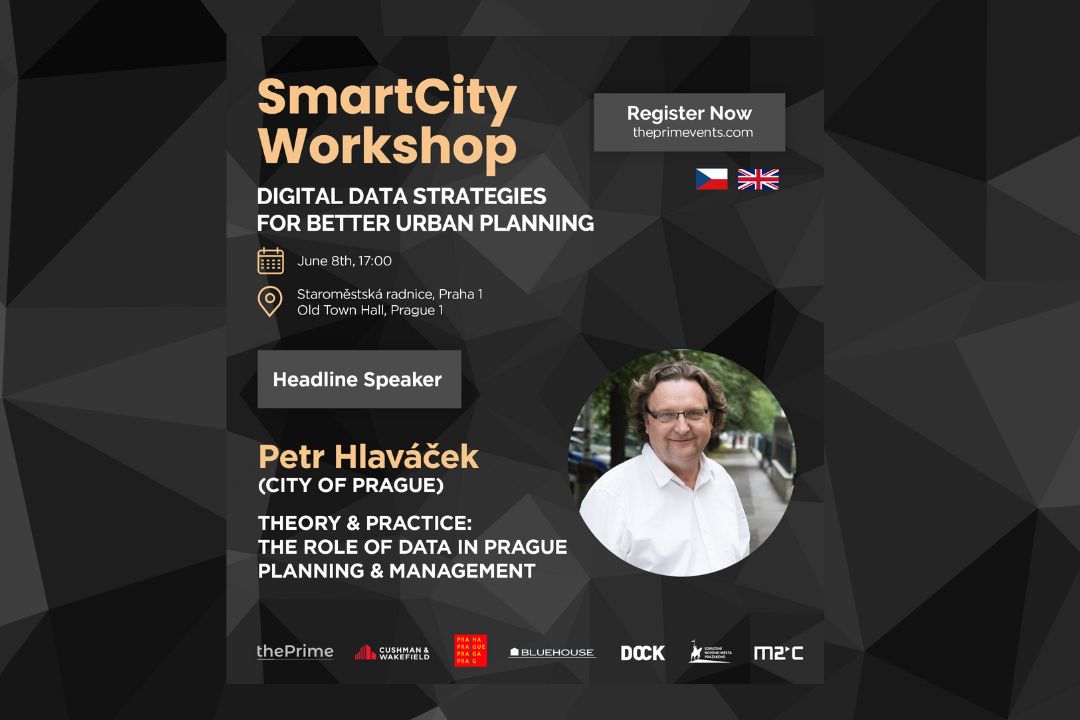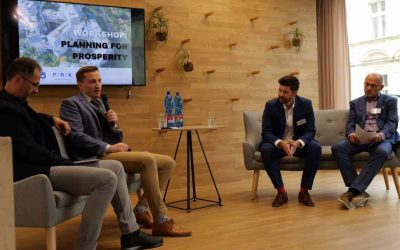What happens to shopping centers that don’t count their shoppers every day? What don’t know how many shoppers spent money last week? Or where they came from? What if they had no data to benchmark performance? They’d be flying blind. They’d had have no answers to why sales were falling? Without data, it’s all guesswork. Without precise information and informed management, shopping centers fail.
It’s no different for cities. We have the idea that cities simply evolve organically into thriving hubs of commerce. In fact, it’s never magic. Like all commercial ventures, cities respond to insightful planning, initiative-taking and energy. Prague’s high street alone contains well over 100,000 sqm of retail space. So, what’s the foot flow along the street each day? Where exactly do the people come from? What brings them there and how do they get there?
The city has taken great strides in recent years, as planners have linked with its politicians to come up with important new initiatives, strategies and investments. But the city is flying blind when it comes to data. As an institution, it barely even knows how residents its has. The correct answer is 250,000 higher than the official figure. But how many people on the streets each day are “local”? How many are day commuters? How many are tourists? Will new developments help local traffic or make it worse?
Prague planners and decision makers have to make policies and strategies without the sort of basic data private sector businesses see as essential. Which is why I’m so encouraged that the City of Prague agreed to support my upcoming event on June 8: SmartCity Workshop: Digital Data Strategies.
Speakers will include public officials like Deputy Mayor Petr Hlaváček along with Jiří Čtyroka (IPR) but also Dr Martin Klamt from Munich’s Urban Planning Department to speak about the approach of other European cities. But there will also be highly experienced private sector real estate professionals like Jan Kotrbáček (Cushman & Wakefield), Iain Fanthorpe (Bluehouse Capital), Michel Žalac and Noah Maayen (Avestus).
This is a unique opportunity to add your voice to the debate at a crucial moment, or just find out more about the city’s plans. Because this a crucial moment for Prague’s future, as it comes out of a 2-year pandemic hibernation.
Deputy Mayor Petr Hlaváček puts the matter this way: “Without the right and accurate data, you can’t make the right decisions. We should know how many people in Prague actually live here and how dynamic the activity is in the entire metropolitan region in relation to the Středočeský kraj. We need accurate data and projections about Prague on a more detailed scale in order to plan for public facilities like schools and other services. The data is needed in order to define what needs to be built in newly developing parts of the city.”
For more information and to register go to the event’s webpage at theprimevents.com. Presentations and debate will be held in English and in Czech with simultaneous translations (using headphones) provided. Big discount on offer for ThePrime subscribers.
Also on ThePrime
Logicor developing 26,000 sqm Royal Canin warehouse near Kraków
Spaceflow raises €8 million from Swedish proptech group Hydda
3Things: Ondřej Titz joins VGP, Aareal, and a simply clever bridge






